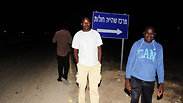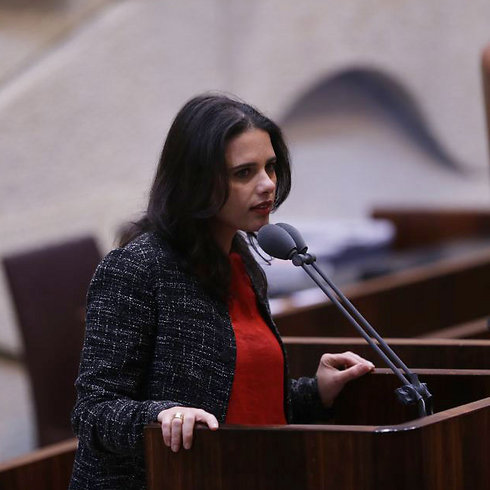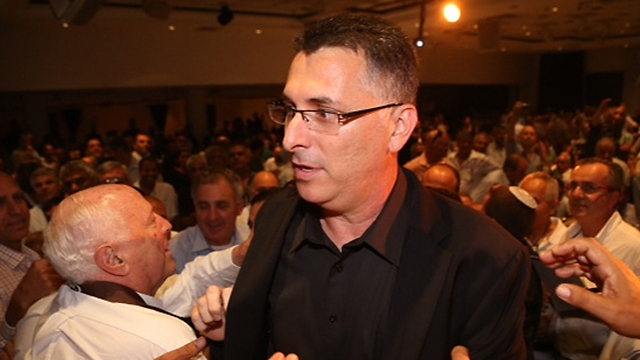
Monday at Holot.
Photo: Herzl Yosef
In wake of a Supreme Court decision to result in the closer of the Holot facility for African asylum seekers, the winter session of the Knesset will open with a discussion on a proposal from Bait Yehudi MK Ayelet Shaked to amend the Basic Law of Human Dignity and Liberty, effectively restricting the court's ability to override laws passed by the Knesset.
Coalition chairman and MK Yariv Levin is also planning on raising the possibility of making similar changes to the law, including a change in the composition of the Judicial Appointments Commission.
Holot was originally constructed along with a Knesset decision to detain asylum seekers at the complex indefinitely until their requests would be reviewed. The facility was considered "open" meaning that detainees were allowed to leave, but had to report back every few hours.
The Supreme Court then shot down the open-ended holding of asylum seekers, and the Knesset passed amendments that would keep African asylum seekers off the streets for a year.
Related stories:
- Holot detention facility to close within 90 days
- Migrants pressured into voluntary departure agreements
- Refugees protests conditions at Negev detention center
Monday's Supreme Court ruling rejected this amendment as well, and decided on the closer of Holot with 90 days on legal grounds. Some 2,200 asylum seekers will be released from Holot in that time, as well as a few hundred of the 500 Africans at the nearby Saharonim prison where many were held after failing to report daily at the Holot facility.
The court also ordered that the government will need to find new alternatives to detention at Holot, which was erected at the cost of half-a-million shekels.
According to figures from Israel's Population and Immigration Authority, there are some 47,000 asylum seekers currently in the country, 35,000 of which are Eritrean and Sudanese.
Due to international law according to the Refugee Convention, Israel is prevented from forcefully expelling the Eritreans and Sudanese back to their home countries because of the life-threatening dangers many face there. Aid groups claim however, that the rejected amendment was intended to put pressure on the asylum seekers to leave Israel of their own free will.
Work visas for asylum seekers?
The policy of trying to push asylum seekers out of Israel has produced some results, and some 6,000 African's have left the country, an increase of over 100%, according the Ministry of Interior.
The outgoing interior ministry Gideon Sa'ar, who originally proposed the amendment that was rejected by the supreme court, said that an urgent meeting with the prime minister should be held on the subject, and suggested, like Shaked, that the court's powers to overturn a Knesset law should be limited.
The government previously rejected various proposals to resolve the issue, including the planned and controlled dispersion of tens of thousands of asylum seeking living in Tel Aviv and other towns across the country. It was also suggested that the asylum seekers be given work permits to fill vital roles in construction and agriculture. It now appears that the government will have to reexamine such proposals as they seek alternative solutions to the immigrant issue.
Shaked's proposal is, in effect, just such an alternative. According to her proposal, an amendment will change the Basic Law just as was done with the Basic Law of Freedom of Occupation. The amendment would impair the Court's ability to rule a law passed by the Knesset as unconstitutional.

















